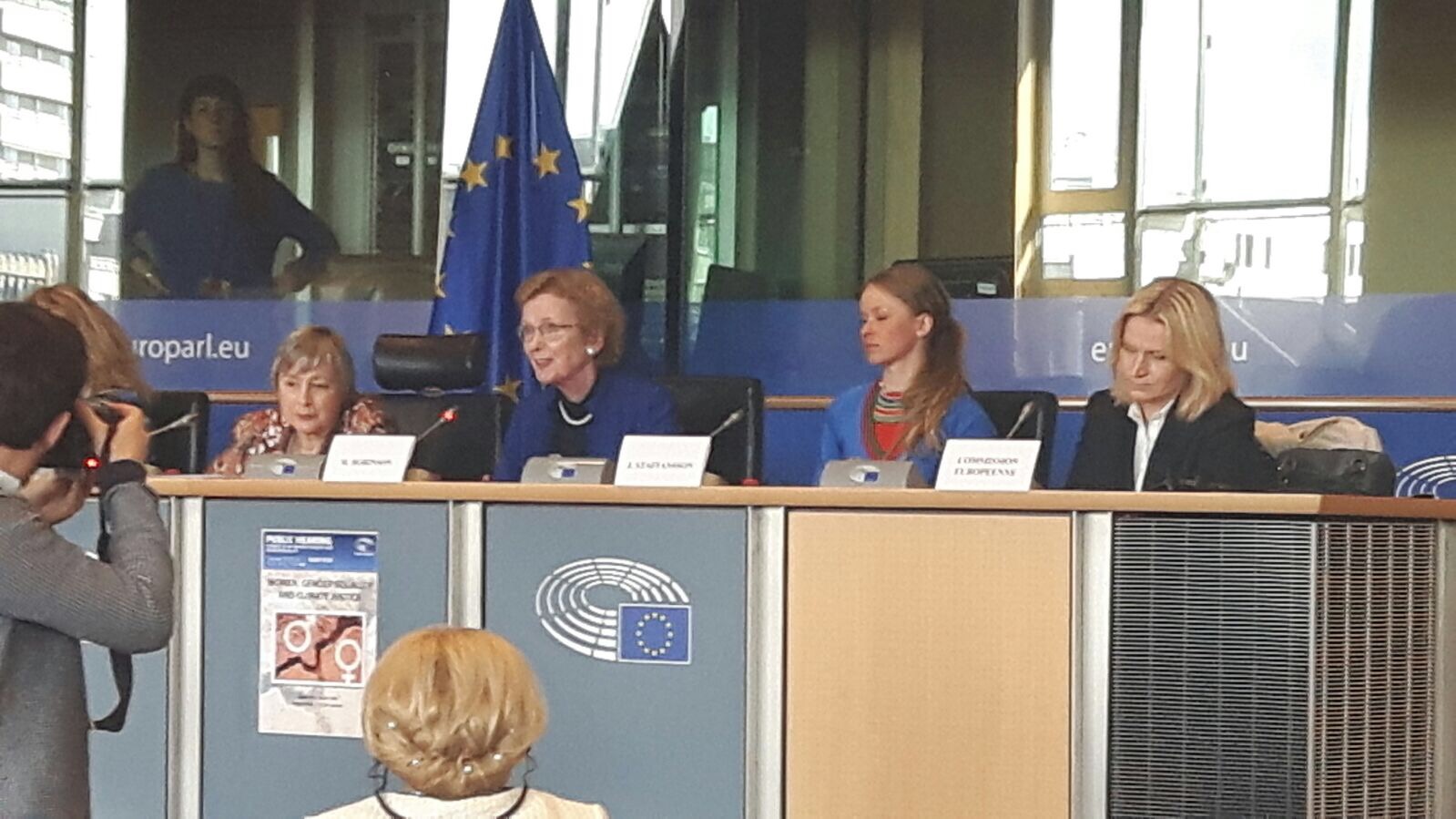Today the European Parliament Committee on Women’s Rights and Gender Equality (FEMM) held a hearing on Women, Gender Equality and Climate Justice. Mary Robinson participated in the hearing along with Jannie Staffansson of the Arctic Council, Elina Bardram, Head of Unit for International and inter-institutional relations of the European Commission and Stefania Del Zotto, Programme Office at NGO Le Monde selon les Femmes.
The hearing is to inform a report that will be the first on climate justice to be voted on by the European Parliament. The report will aim to highlight the gendered nature of climate change as well as present a clear framework to ensure that women and men are equally protected from the negative consequences of climate change.
Opening the session, Rapporteur of the committee, Linnéa Engström said that women and girls are disproportionately impacted by climate change. She added that women have a large role to play in dealing with the impacts. “Women have been on the frontlines of adaptation and mitigation. They have been formidable climate change activists working with families community and economies to fend off the effects of extreme weather events and build resilience.” But she said that because of the “unequal participation of women and men in decision making processes has meant rights and contributions of women are not adequately considered in disaster preparation and response plans.”
Making her contribution, Mary Robinson said that the gender dimensions of climate change are still underestimated. “Women are more affected by climate change because of their traditional roles in the community, but they are not victims, they are increasingly agents of change.”
She pointed to the importance of including grassroots women and local and traditional knowledge in the development of the global gender action plan. Mrs Robinson called on the EU to “ensure that in the implementation of the Paris Climate Agreement, it creates enabling environments for gender-responsive climate action”.
Elina Bardram said: “Gender equality and empowerment of women as well as democracy and human rights are indispensable for achieving inter generational equity on climate change.” She said that the EU’s objective in the climate negotiations is to “ensure that gender equality and full participation of women in all climate action and responsiveness as a prerequisite for effective climate policy”. Stefania Del Zotto added that women’s participation in negotiations should happen “at all levels, not just at high level but at the very local level.”
Jannie Staffansson, a member of the Saami Council, an indigenous group in northern Scandinavia gave an account of how her community is being impacted by climate change. Coming from a reindeer herding family she said that in their daily lives they are living with climate change. “It is not a threat, it is here and it is severe.”
“For us the weather is central and its a discussion at our dinner table every day,” because they have to try to predict the weather as their lives depend on it. “I have listened to the elders about the changing climate, worrying and not looking optimistic,” she said.
Related links
Video of Hearing of the Committee on Women’s Rights and Gender Equality
European Parliament FEMM Committee
Our Work on Women’s Leadership on Gender and Climate Change


